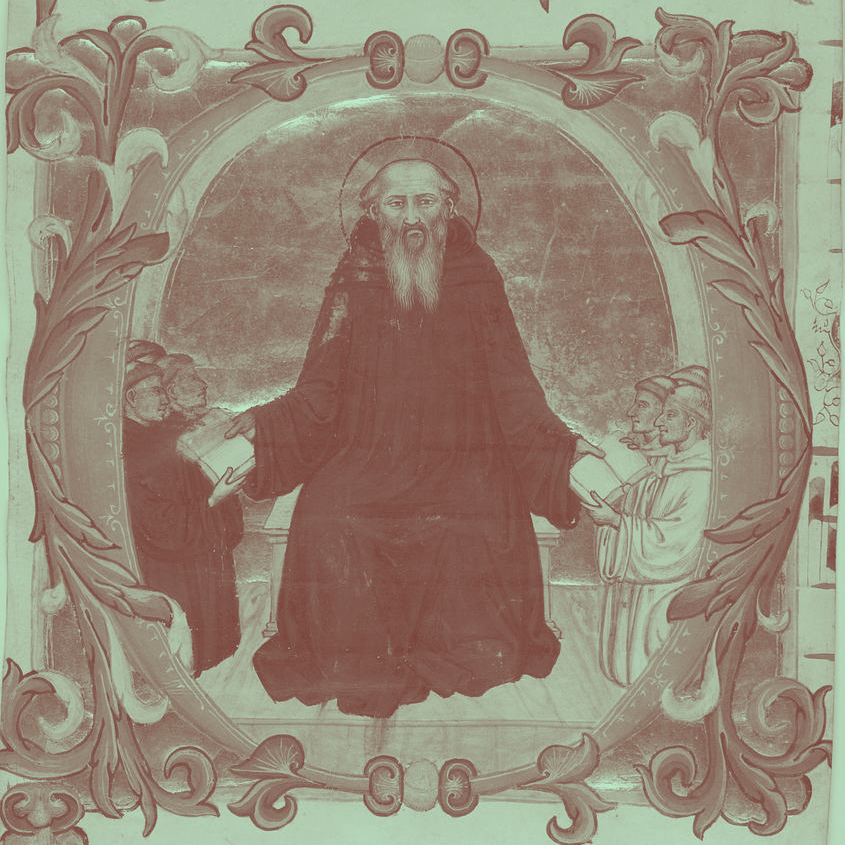June 15 // Abbey Ales and Protein Bars
Last night was an absurdity. Though my body and mind were both starving for sleep, I was late on an assignment and spent several hours in bed trying to milk out a few strings of SEO-friendly sentences from a spent system, slapping myself to stay awake like some kind of freelance Martin Luther, mortifying my flesh for $0.20/word.
Conceptually, I’ll admit only to you, after the whiplash of the preceding week/month/year, staying in a French abbey sounded like just the ticket. Betwixt the pacifying greenery, the the tranquilizing single bedroom, the analgesic lack of Internet, surely some kind of great revelation about myself would percolate out from my subconscious and plop onto the desk like a wise, succulent trout.
Instead, I found my mind split between desperate exhaustion and a suffocating sense of guilt. How dare you squander this rare opportunity for silent reflection in pursuit of a buck, I asked myself metatextually and not at all literally! How dare you be on your computer at a time like this when you could be allowing to the songbirds lull you to sleep, or defacing the Bible they’ve left on that desk with pictures of cartoonishly small but surprisingly judicious monkeys with arms for legs and legs for arms?!
During the few hours I’d had here over the previous day, I’d observed these monks scurrying about the abbey grounds, nodding in silence with the mildest of smiles entranced onto their faces, and found the jealousy creeping in. Of what good was all this travel, this experience? Long fueled by the impulse that every moment needs to be tangibly productive, every interaction useful, perhaps there was something I, brainwashed as I was by this all-consuming capitalism, could learn from these men and their simple, stupid lives?
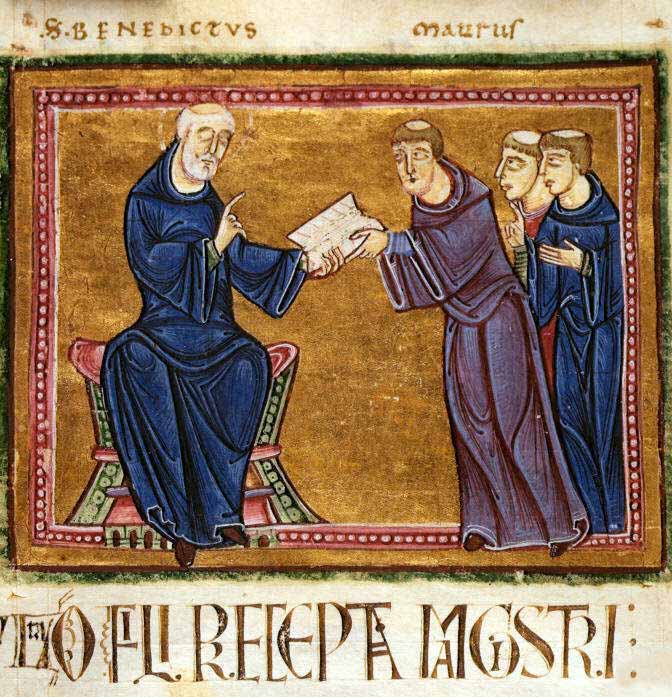
In the Rule of Saint Benedict, a list of commandments in use for fifteen centuries, that monk from Nursia (today’s Norcia, a real sausage town in southeastern Umbria) prescribes a life of balance, of ora et labora (prayer and labor). Here, he notes, the brothers must eat and drink in moderation (hence our weird-ass, hyper-fast, altogether unsatisfying meal), and welcome all guests “as Christ,” with particular regard for pilgrims and the poor (hence the hand washing from The Abbott, who definitely wasn’t Estelle Getty).
Since I’m cherrypicking already: Ol’ Ben also considers private ownership within these communities to “evil” and stresses that “all things should be the common possession of all, as it is written, so that no one presumes to call anything his own.”
These people’s a dang Comanists!
One other matter I found interesting: though pilgrims are welcomed as Christ, Benedictine refers to his wandering brothers (gyrovagues) as worse than “the most detestable kind of monks.” He continues: “Always on the move, they never settle down, and are slaves to their own wills and gross appetites.”
So in a way, you might say that I do have monastic qualities, after all.
Upon leaving our friends at the Abbey, our first order of business is securing Internet so that we might, well, know where we’re going next, and in this area, all roads seem to lead to the town of Saint-Omer.
On this Sunday – a French Father’s Day of sorts, as it turns out – all the decent Omerians seem to be at church, and our attempt to shortcut through their Cathedral of Notre-Dame is thwarted by yet another man with a stylish bluetooth headset nuzzled in his ear as if it were the year 2002.
Ultimately, Mark and I settle in amongst the sinners and their neck tattoos at Spey River Bar-Brasserie, maker of the most repulsive cappuccino I’ve had in my life (whipped cream?!). It’s fascinating, at least for me, to find that we’re in the Grande Place de Saint-Omer, and that at the center of this town’s main square is not the cathedral but the neoclassical Théâtre La Barcarolle! Oddly (or is it?), the theater was built at the center of town between 1834 and 1841 – long after the death of Napoleon, long before the aforementioned Law of Associations, and under the reign of King Louis Philippe, who was himself a notorious Catholic – and while I have no clue about city planning in the Pays-de-Calais, I do wish more cities centered themselves around the theater.
Saint-Omer’s history is interesting any way you cut it: dating back at least to the 7th century, Saint-Omer had quite the medieval age, finding itself occupied by the likes of the Burgundian Netherlands, the Habsburg Netherlands, and the Spanish Netherlands in the space between the 14th and 17th centuries. Sucks for them, I assume.
As Frère Renaud had informed me back when I thought he was all labora and no ora, this region was also the site of a major airfield during World War I for the British Royal Flying Corps, one that would later be commandeered by the Nazi Luftwaffe during WWII.
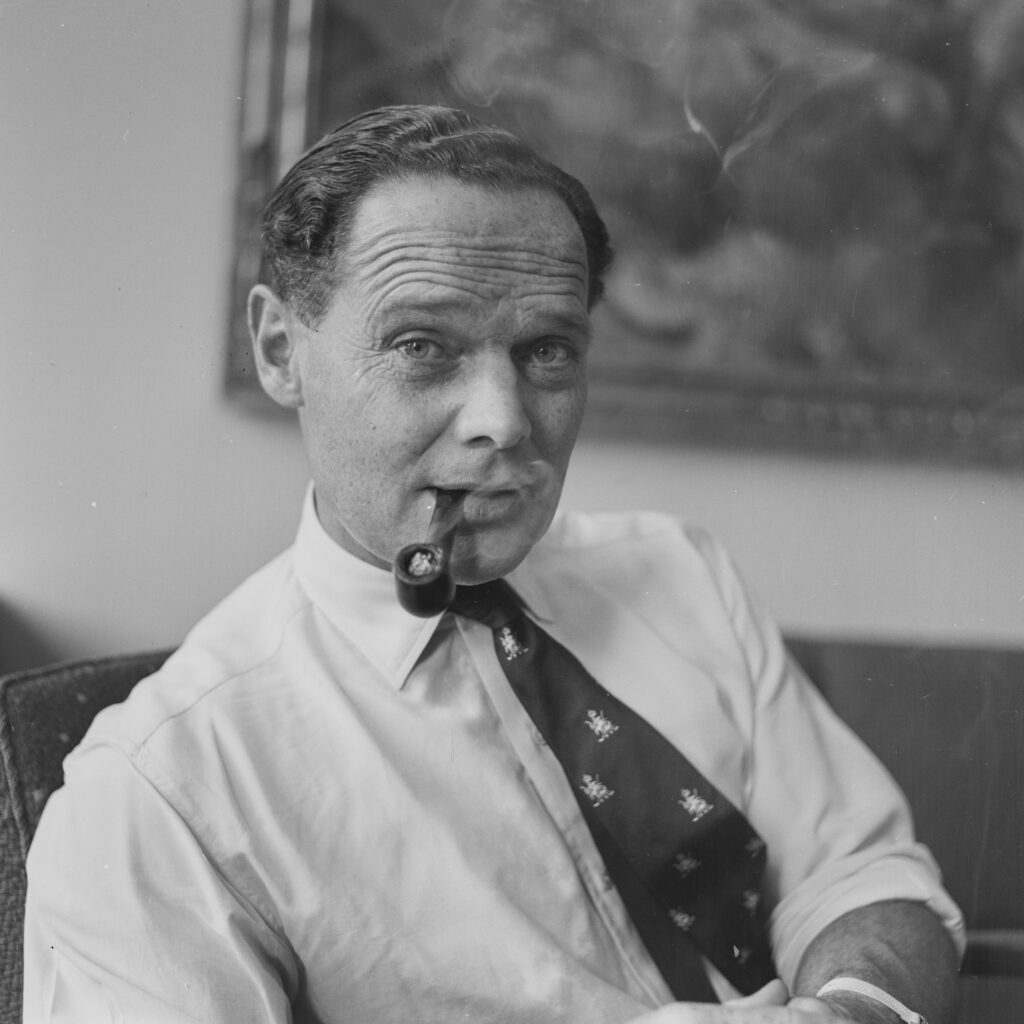
It also seems that it was here in Saint-Omer, the same town where his father had died in 1922 following injuries sustained in the Great War, that a legless ace named Douglas “Dogsbody” Bader crashed his Spitfire and lost one of his prosthetics, a replacement of which had to be airdropped during a subsequent raid against the Germans and I would just like to note how impressive it is that we had the technology then, now, or any time in history to successfully airdrop a leg.
Speaking of heroes, after a valiant struggle not only to 1) successfully convey in French to the talentless-but-kind, waifish barista that we wished to have the WiFi password, 2) successfully type said password into our phones, but also 3) successfully contact several potential sources of accommodation, we point ourselves to the horizon several minutes before the clock strikes eleven.
For pilgrims on foot, such a late departure time is unthinkable; for us, it is but de rigueur.
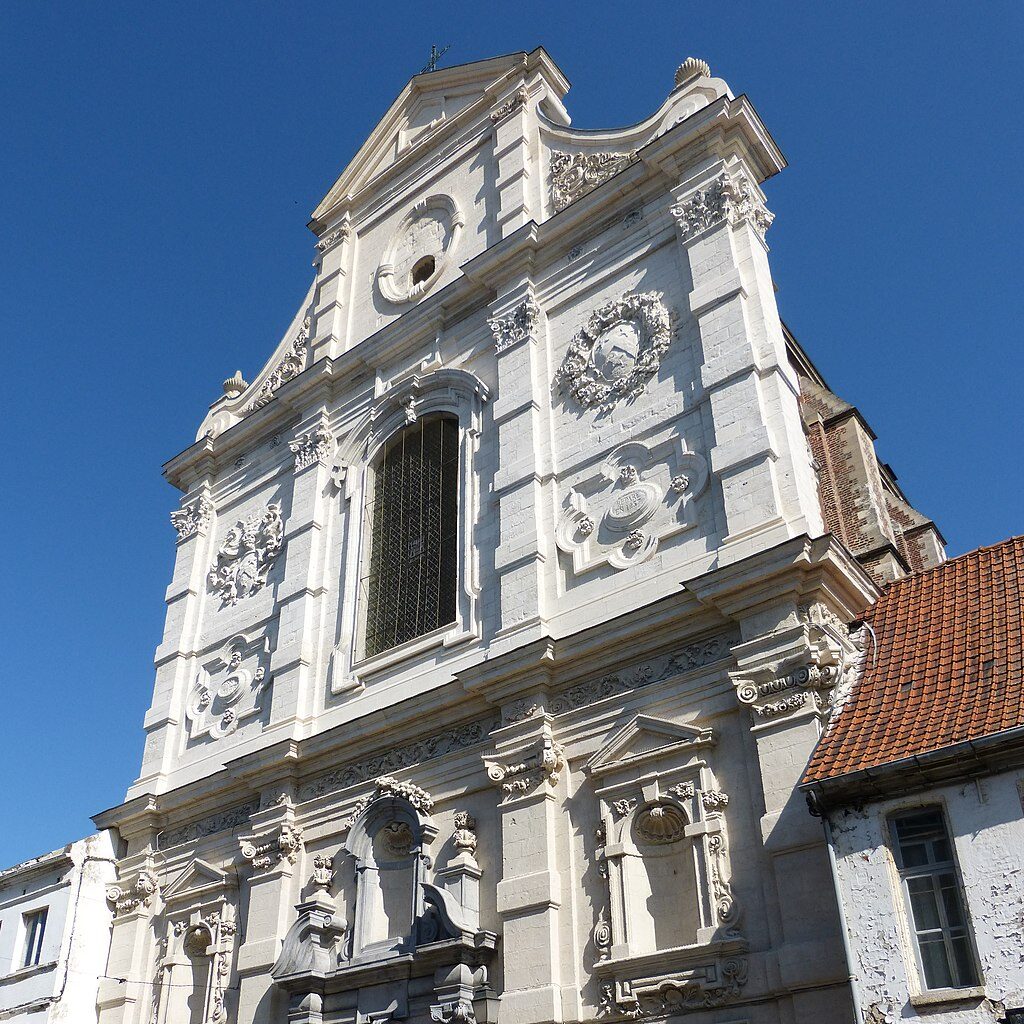
Despite the heat, today’s ride is largely flat, easy and uneventful, and beyond the charm of Aire-sur-la-Lys, with its markedly baroque, hyphen-rich Chapelle Saint-Jacques-le-Majeur-et-Saint-Ignace-de-Loyola and the leafy Parc Naturel des Ballastières with its canal-so-still-it’s-almost-dead, there is little about this day that stands out other than the utter lack of anything.
On this Sunday, this Fête des Pères, with nothing but a croissant and a bad cappuccino in my gut, there seems to be nothing among the farmland that might offer anything, let alone anything open, and we have little choice but to stick to the path toward a remote farmstay called La ferme des 2 tilleuls that must be around here somewhere.
Before we can reach the Ferme, though, we must pass through the village of Saint-Hilaire-Cottes. And, as luck would have it, it’s here we finally find something open.
Please note that there isn’t anything particularly special about Bar Au Bon Accueil. Its actual bar, built of unvarnished burlwood, is pleasant to rub with my clamhands, I’ll give it that, but the rest is linoleum and lotto machines and a group of surprisingly young mid-day drinkers, the majority of whom seem to clutch unlit cigarettes between their fingers.
The barmaid, a stout hunkchip of a lady presumably in her early 60s, sports equally beefy, positively intriguing glasses through which she glares at these two foreign boys who just ambled into her bar in their spandex bulgepants.
The flimsy blonde one opens his mouth and spills out words unknown, perhaps French of origin; she volleys a few country words to her clientele and they laugh, then gives him (me) a wink.
Now conscious of my crotch, I attend to the fridge, which contains several attractive breeds of beers, and request the one with the blue label: Secret des Moines. Tripel. Brune. 8%.
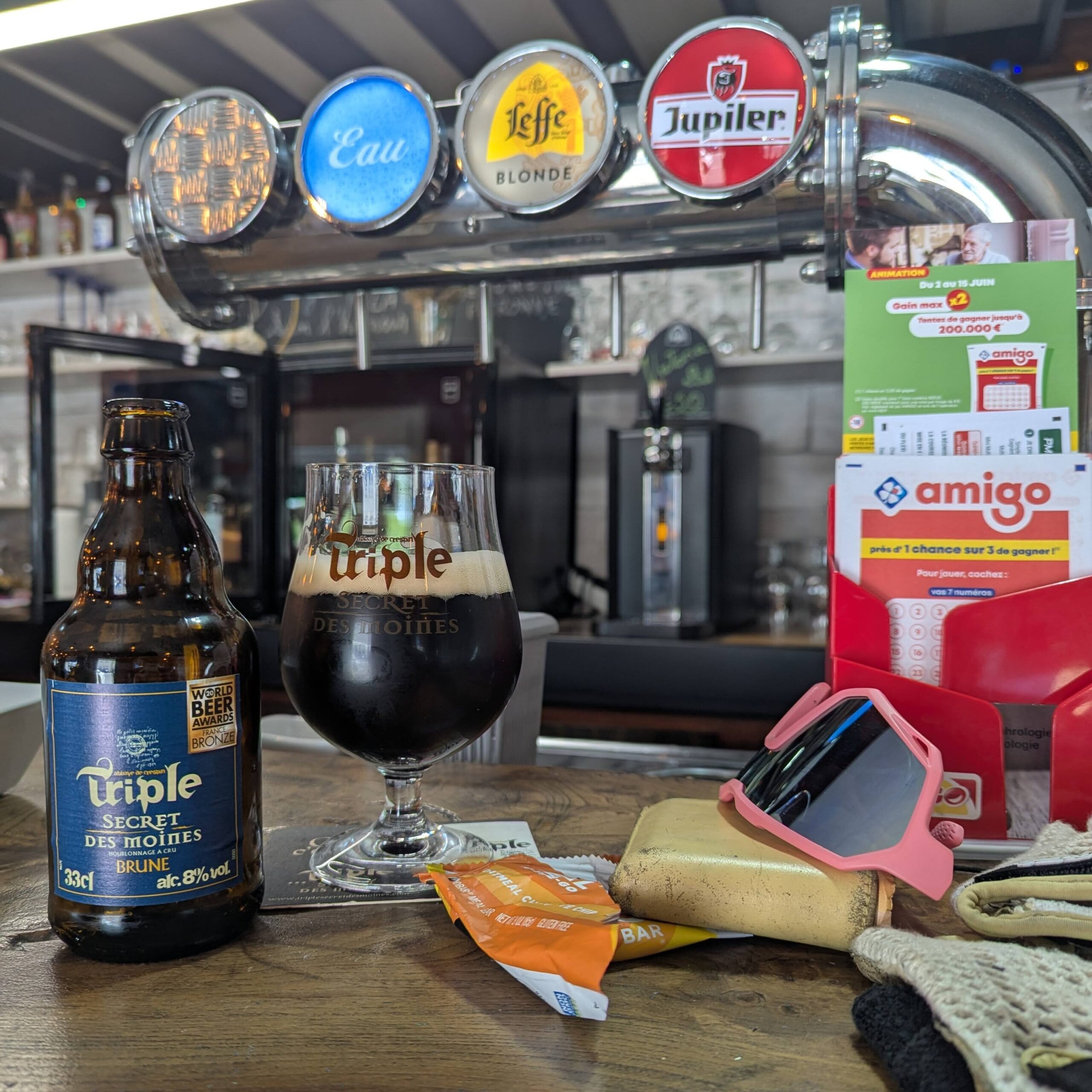
Mark, eyeing the tap, gets himself a Leffe. Blonde. 6.6%. He moans. “This is so fucking good, holy shit, what the fuck” he says.
“My beer taste strong,” I snort, and eat a fistful of the snack mix we’ve been profrered. “Encore, s’il vous plaît,” I ask the barmaid. “Deux Leffe?” It seems I am already drunk. I am also dizzy with hunger.
Nevertheless, I taste the Leffe. It is, indeed, the best Leffe of my liffe, and goes down far too easy to be safe. I drink more until it is all in my stomach. “Cette eau est pétillante et jaune,” I slur like a three-year-old with a head wound.
“Comment?” the barmaid asks, squinting at me while presumably thinking about my tortuous bulge.
“L’eau. Blond. Écume…? Shit,” I slur, now unsure of myself. “I tried to say this water, it is foamy and yellow,” I translate to Mark, but he doesn’t understand what I am getting at and neither does the barmaid and I feel very insecure and unable to think of how to follow all of that up until thankfully the door swings open and a large, imposing man in large imposing jeans walks through the door, a smaller-yet-still-imposing young woman right behind him.
“Bonsoir à tous,” he says with a surprising lack of hostility, and approaches me with his hand outstretched. Umm, OK. I guess I’ll shake it. The lady then does the same and, well, I guess I’ll shake that, too. Then the man does the same to Mark, then the lady to Mark, then the man to the barmaid, then the lady to the barmaid, then the man to another man, then the lady to another man, and they continue with their handshaking routine until everyone in the bar has had a turn.
“What the fuck was that,” Mark whispers, probably also drunk. Soon enough another male person enters, this one a bit smaller and grayer and presumably French, and sure enough, he, too, shakes everyone’s hand. “Everyone keeps shaking our hand,” he says.
“I know,” I say, which is true. “Mark, I really think I need to eat something.”
Soon enough, we’re maybe five strongbeers in and Mark has kindly gifted me one of his protein bars, but my head is still spinning and the barmaid and I are now great friends who have most certainly not made out, which is also true because I’m not actually that drunk at all and have simply exaggerated the effects of the beer for the sake of this entry, and to that point Mark and I decide that if we hope to make the last five miles to the farm without incident we’ll certainly need more beers. And that packet of CBD. And some rolling papers. And that lighter, which she gifts to Mark because she loves me.
And as dog as my witness, as sure as shellfish, when it came time to bid that beautiful bar and its kindly patrons farewell, what did we do?
I can’t quite recall, to be honest, but you thought I was going to say that we shook everyone’s hand. And that’s distinctly possible. We might have done that.
Post Script: Did you know that Saint Benedict is the godfather of abbey ale? And that there is a coterie of American monks who brew such beer in his hometown? And that I once interviewed one of these monks for Whetstone? Now you do!

